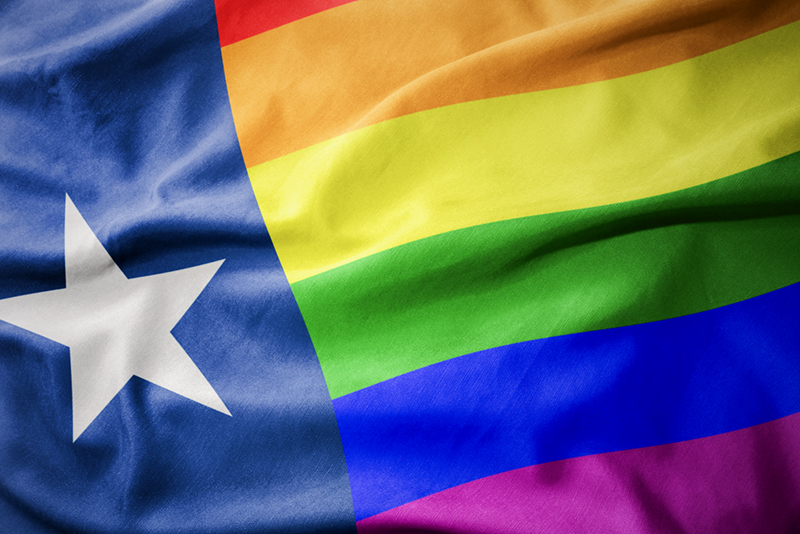Texas governor to sign “Save Chick-fil-A” bill into law
Opponents see the bill as an attempt to circumvent local ordinances prohibiting anti-LGBTQ discrimination

Texas Gov. Greg Abbott has promised to sign a piece of religious freedom legislation — dubbed the “Save Chick-fil-A” bill — that would essentially override local ordinances prohibiting nondiscrimination against LGBTQ people.
The bill prevents governmental entities, including legislative agencies, counties, municipalities, elected officials, or government employees, from taking “adverse action” against an individual or business that acts in accordance with their religious conscience. That includes businesses, like Chick-fil-A, that make monetary contributions (which conservatives believe is a form of free speech) to organizations that embrace traditional views of marriage, sexuality, and gender.
The bill was introduced in reaction to the San Antonio City Council blocking Chick-fil-A from opening a location inside the San Antonio International Airport. The Council had balked at the potential restaurant opening due to Chick-fil-A’s continued donations to anti-LGBTQ groups.
Organizations that have received donations in the past included the Fellowship of Christian Athletes, which requires members to adhere to a “sexual purity” policy that opposes “homosexual acts,” the Salvation Army, which has fought against LGBTQ-inclusive nondiscrimination laws, and the Paul Anderson Youth Home, a residential home for troubled young men that reportedly teaches that being gay is wrong and that same-sex marriage is against “Jesus Christ and his values.”
Chick-fil-A has admitted to all its past donations, but clarified that it has not donated to the Paul Anderson Youth Home since June 2017.
San Antonio Councilman Roberto Treviño said that the Council blocked Chick-fil-A from the airport to send a message that the city supports LGBTQ equality and inclusion.
“San Antonio is a city full of compassion, and we do not have room in our public facilities for a business with a legacy of anti-LGBTQ behavior,” he said at the time. “Everyone has a place here, and everyone should feel welcome when they walk through our airport.”
The “religious conscience” bill, in its original form, was killed in the House after members of the LGBTQ Caucus used a pair of procedural maneuvers to block a vote on the bill. In response, Republicans in the Senate fast-tracked the bill without notice, quickly voting it out of committee and eventually passing it by a 19-12 vote.
The House then amended the bill to make it similar to the original defeated measure, passing it by a vote of 79-64, with two Republican members, including Speaker Dennis Bonnen (R-Angleton) voting “present.” The bill went back to the Senate where it easily passed, sending the measure to Gov. Abbott’s desk.
Abbott alluded to the fact that he plans to sign the bill in a tweet showing a Chick-fil-A soda cup on his laptop, with the message: “So. What are the odds I’ll sign the Chick-fil-A bill? I’ll let you know after dinner.”
So. What are the odds I’ll sign the Chick-fil-A bill?
I’ll let you know after dinner.
@ChickfilA #txlege pic.twitter.com/xKS3vDV4gS
— Greg Abbott (@GregAbbott_TX) May 21, 2019
One change in the version expected to be signed by Abbott on Monday is the elimination of a provision that would have required the Attorney General to file lawsuits enforcing the law. But Attorney General Ken Paxton (R) has already expressed his intention to investigate and potentially take action against the city of San Antonio for blocking Chick-fil-A.
Opponents of the bill have blasted the measure as another attempt to encourage anti-LGBTQ animus and denials of service, arguing that it essentially overrides local ordinances that prohibit any form of discrimination against people based on their sexual orientation or gender identity.
Some have even dubbed the measure “Bathroom Bill 2.0,” after a 2017 piece of legislation, which was ultimately defeated, that would have required transgender people to use restrooms, locker rooms, or other facilities that match their assigned sex at birth.
Equality Texas, the state’s top LGBTQ organization, linked on its Facebook page to an editorial in the Houston Chronicle by Erica Grieder criticizing the bill, its branding as a “Save Chick-fil-A” bill, and Republican lawmakers’ prioritization of it, writing: “Does something that isn’t struggling need to be ‘saved?'”

In her piece, Grieder notes that the language in the original House bill, which used language referring to individuals’ “sincerely held religious beliefs or moral convictions” — which Grieder notes is open to interpretation and would be hard to prove — would have potentially “given Texans the right to commit other forms of harm, and to flout any inconvenient or burdensome law.” While disagreeing with the San Antonio City Council’s action, Grieder also noted that it is likely to be found to be unconstitutional and violate the First Amendment, thereby making the bill unnecessary.
“This bill is about power, and this bill is about fear. This bill is about giving some Texans the ability to ‘break glass in case of emergency’ and dismiss anyone for any reason,” State Rep. Jessica González (D-Dallas), the vice-chair of the Texas House LGBTQ Caucus, said in her floor speech. “This bill creates two classes of Texans: those trying to get an education, make a living, support a family, and serve their community; and those with the power to deprive them of their dignity in their everyday lives.”
“Bathroom Bill 2.0 will give Texas Republicans and corporations a license to discriminate. Republicans know legalized discrimination will cost working families and small businesses billions of dollars — that’s why they snuck the bill through committee without any public notice,” MarcoAntonio Orrantia, a spokesman for the Texas Democratic Party, said in a statement.
Despite previous pronouncements by Chick-fil-A CEO Dan Cathy that he opposes same-sex marriage, the company has attempted to stay out of the political arena, with a company spokesperson telling NBC News that the company was not involved with this bill “in any way.”
“We are a restaurant company focused on food and hospitality for all, and we have no social or political stance,” the spokesperson told NBC. “We are grateful for all our customers and are glad to serve them at any time. We welcome and embrace all people, regardless of religion, race, gender, ethnicity, sexual orientation or gender identity.”
Support Metro Weekly’s Journalism
These are challenging times for news organizations. And yet it’s crucial we stay active and provide vital resources and information to both our local readers and the world. So won’t you please take a moment and consider supporting Metro Weekly with a membership? For as little as $5 a month, you can help ensure Metro Weekly magazine and MetroWeekly.com remain free, viable resources as we provide the best, most diverse, culturally-resonant LGBTQ coverage in both the D.C. region and around the world. Memberships come with exclusive perks and discounts, your own personal digital delivery of each week’s magazine (and an archive), access to our Member's Lounge when it launches this fall, and exclusive members-only items like Metro Weekly Membership Mugs and Tote Bags! Check out all our membership levels here and please join us today!



























